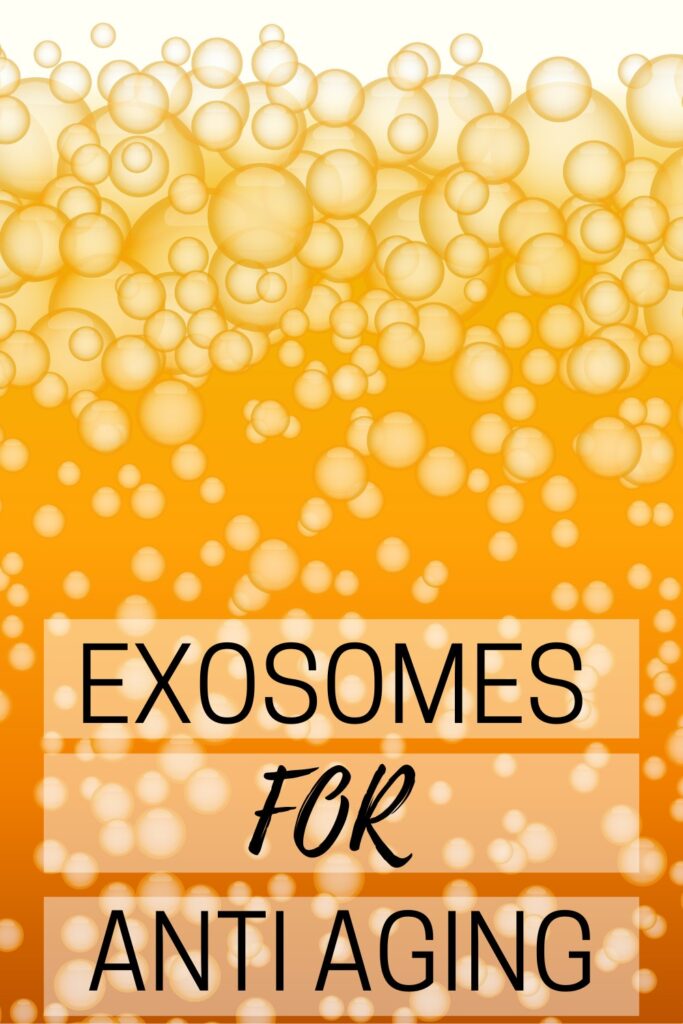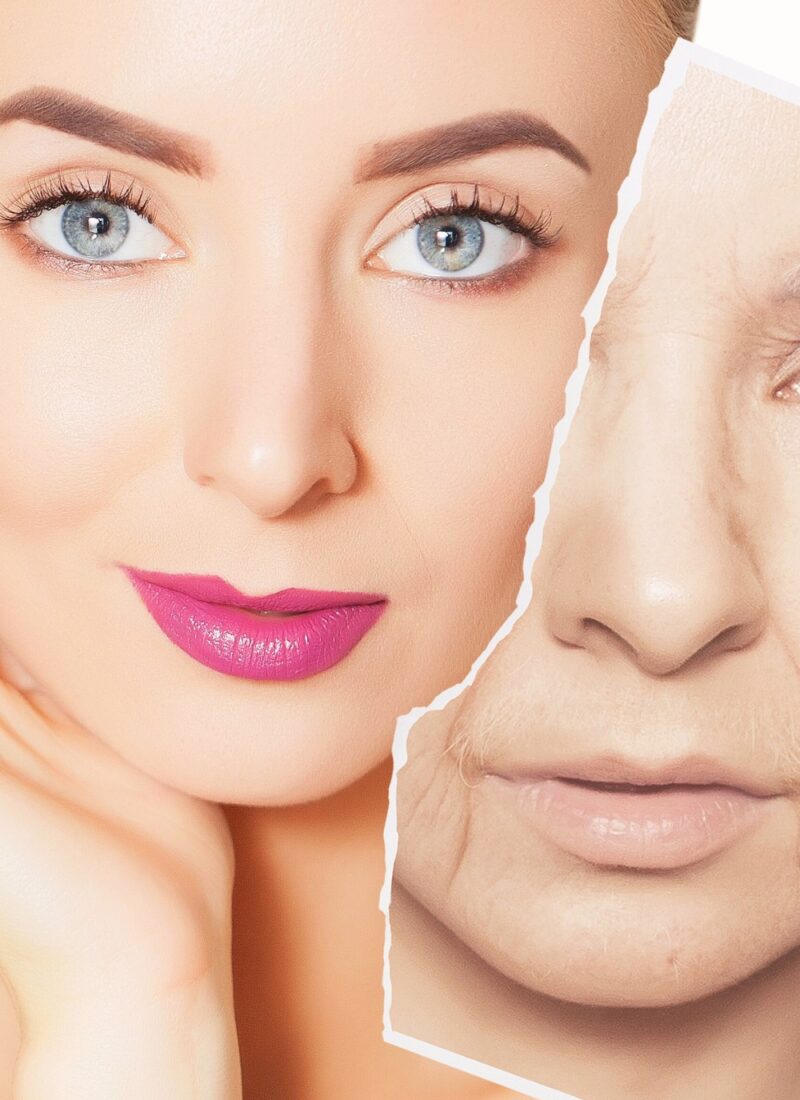Exosomes may not be as widely recognized as popular ingredients like hyaluronic acid or niacinamide, but could they be the next big thing in anti-aging skincare? During my time in Japan, I couldn’t help but notice how this ingredient was gaining attention — appearing everywhere from local pharmacies and beauty stores to skincare ads and even casual conversations between celebrities . Did I try the products? Absolutely, and I love them! While exosomes aren’t yet FDA-approved in the U.S., if you’re passionate about skincare, it’s worth understanding why this ingredient is gaining so much attention. Let’s dive in and explore what it’s all about!
What Are Exosomes? – The messenger
Exosomes are tiny vesicles, or bubbles, that are naturally released by cells into the bloodstream or surrounding tissues. These micro-particles are filled with proteins, lipids, and RNA (genetic material) that allow them to facilitate communication between cells. Think of exosomes as the messengers of the body, delivering vital information from one cell to another. This communication is essential for various biological processes, including cell repair, regeneration, and even immune responses.
In recent years, exosomes have garnered significant attention in the field of skincare due to their ability to promote healing and tissue repair. Scientists and skincare experts have recognized their potential to accelerate the skin’s natural rejuvenation processes, making them an exciting candidate for anti-aging treatments.
How Do Exosomes Work in Skincare?
In skincare, exosomes work as a sort of “delivery system” to promote skin regeneration and healing. They contain a variety of bioactive molecules that can trigger cellular processes such as collagen production, cell turnover, and tissue regeneration. Exosomes can also support the skin’s natural ability to repair damage caused by environmental stressors like UV rays, pollution, and pollution.
When applied topically, exosomes have the ability to penetrate the skin barrier and interact with deeper layers of the skin. This allows them to enhance the production of collagen and elastin, two critical proteins that keep the skin firm, smooth, and youthful. Collagen, in particular, is the building block of the skin, providing structural support, while elastin ensures the skin remains flexible and resilient. As we age, the production of both of these proteins decreases, leading to fine lines, wrinkles, and sagging skin. By encouraging the skin to produce more collagen and elastin, exosomes help to fight these visible signs of aging.
However, the benefits of exosomes go beyond just collagen and elastin production. Exosomes also contain growth factors that help reduce inflammation, repair damaged skin, and improve overall skin health. Their regenerative potential makes them an ideal ingredient for anti-aging products, as they can address a wide range of skin concerns, from dullness to fine lines to uneven texture.
Why Are Exosomes Great for Anti-Aging?
The idea of using exosomes in skincare revolves around their ability to accelerate the skin’s natural healing and rejuvenation processes. Here’s why exosomes are making waves in the anti-aging world:
- Collagen and Elastin Production: As mentioned, exosomes promote the production of collagen and elastin, two essential proteins that keep skin youthful and firm. By encouraging the body to generate more of these proteins, exosomes help to improve the appearance of fine lines, wrinkles, and sagging skin.
- Cell Regeneration: Exosomes contain growth factors and other molecules that stimulate cell turnover and skin regeneration. As we age, the skin’s ability to regenerate slows down, leading to dullness and the formation of wrinkles. Exosomes can speed up this process, helping to maintain a more youthful, radiant complexion.
- Targeted Healing: Exosomes can deliver essential bioactive molecules directly to the skin cells that need them the most. Whether it’s repairing damaged skin from sun exposure, reducing inflammation, or promoting the healing of scars, exosomes can effectively address a variety of skin concerns with precision.
- Reduced Inflammation: Inflammation is one of the primary drivers of aging, causing damage to skin cells and accelerating the formation of wrinkles and sagging. Exosomes help to reduce inflammation by delivering cytokines that regulate immune responses, which can lead to calmer, healthier skin over time.
- Improved Skin Barrier Function: A healthy skin barrier is essential for keeping the skin hydrated and protected from environmental damage. Exosomes help to strengthen the skin barrier by promoting the repair of damaged skin cells, which can improve overall skin texture and hydration levels.
Exosomes vs. Growth Factors: What’s the Difference?
Exosomes are often compared to growth factors in skincare, and for good reason. Both exosomes and growth factors play critical roles in cellular communication and regeneration, but they are not the same thing. So, what’s the difference between the two?
Growth Factors are proteins that bind to receptors on the surface of cells, triggering a cascade of signals that stimulate cellular functions such as growth, healing, and regeneration. They are commonly used in skincare products to promote cell turnover and collagen production, making them a popular ingredient in anti-aging treatments.
Exosomes, on the other hand, are much more complex. Instead of just containing a single growth factor or protein, exosomes are packed with a variety of bioactive molecules, including growth factors, lipids, RNA, and enzymes. This means that exosomes offer a broader range of benefits than growth factors alone, as they can support multiple aspects of skin regeneration, repair, and overall health. They act as a sort of “delivery system” that provides targeted treatment to specific cells and areas of the skin.
While both exosomes and growth factors are valuable in skincare, exosomes have the added advantage of being more versatile and capable of delivering a wider variety of molecules to the skin. This makes them an exciting and promising ingredient in anti-aging formulations.
Risks and Considerations When Using Exosomes
As with any emerging skincare ingredient, there are potential risks and considerations to keep in mind when using exosomes. The most significant factor is that exosomes are still relatively new in the skincare industry, and their long-term safety and efficacy are not yet fully understood. Here are some important things to consider:
- FDA Approval: Exosomes are not yet FDA-approved for use in over-the-counter skincare products in the U.S. While they are being used in some clinical treatments, particularly in regenerative medicine, their status in the skincare industry is still evolving. It’s essential to stay informed about any regulatory changes as exosomes gain popularity.
- Potential Allergic Reactions: As with any ingredient, there is a risk of allergic reactions, especially for individuals with sensitive skin. It’s always recommended to patch-test a product containing exosomes before applying it to your entire face.
- Quality Control: Since exosomes are derived from cells, the quality and source of the exosomes can vary between products. It’s crucial to ensure that you are purchasing exosome-based products from reputable brands that prioritize safety and quality control.
- Cost: Exosome-based products tend to be more expensive than traditional skincare treatments. Due to their complex manufacturing process and regenerative properties, these products may come with a higher price tag.
Conclusion: Are Exosomes the Future of Anti-Aging?
Exosomes have the potential to revolutionize the world of skincare, especially in the realm of anti-aging. Their ability to promote collagen production, accelerate skin regeneration, and reduce inflammation makes them an exciting addition to skincare. While there are still some uncertainties surrounding their long-term use and FDA approval, the science behind exosomes is promising and exciting. Their rise in popularity in some other countries suggests that they may be here to stay.
If you’re looking for a cutting-edge anti-aging ingredient, exosomes could very well be the next big thing to watch. However, as with any new skincare trend, it’s important to approach exosome-based products with caution, stay informed about their development, and consult with a dermatologist if you have any concerns.
In the ever-evolving world of skincare, one thing is certain: exosomes are a trend that’s likely to continue gaining momentum — and for good reason. With their potential to heal, rejuvenate, and restore the skin, they may just be the key to maintaining a youthful glow for years to come!
This post is all about Exosomes. What they are and their effect on skin care.
Disclaimer: This blog provides general skincare advice and product recommendations. Always consult with a dermatologist or healthcare professional.





Leave a Reply